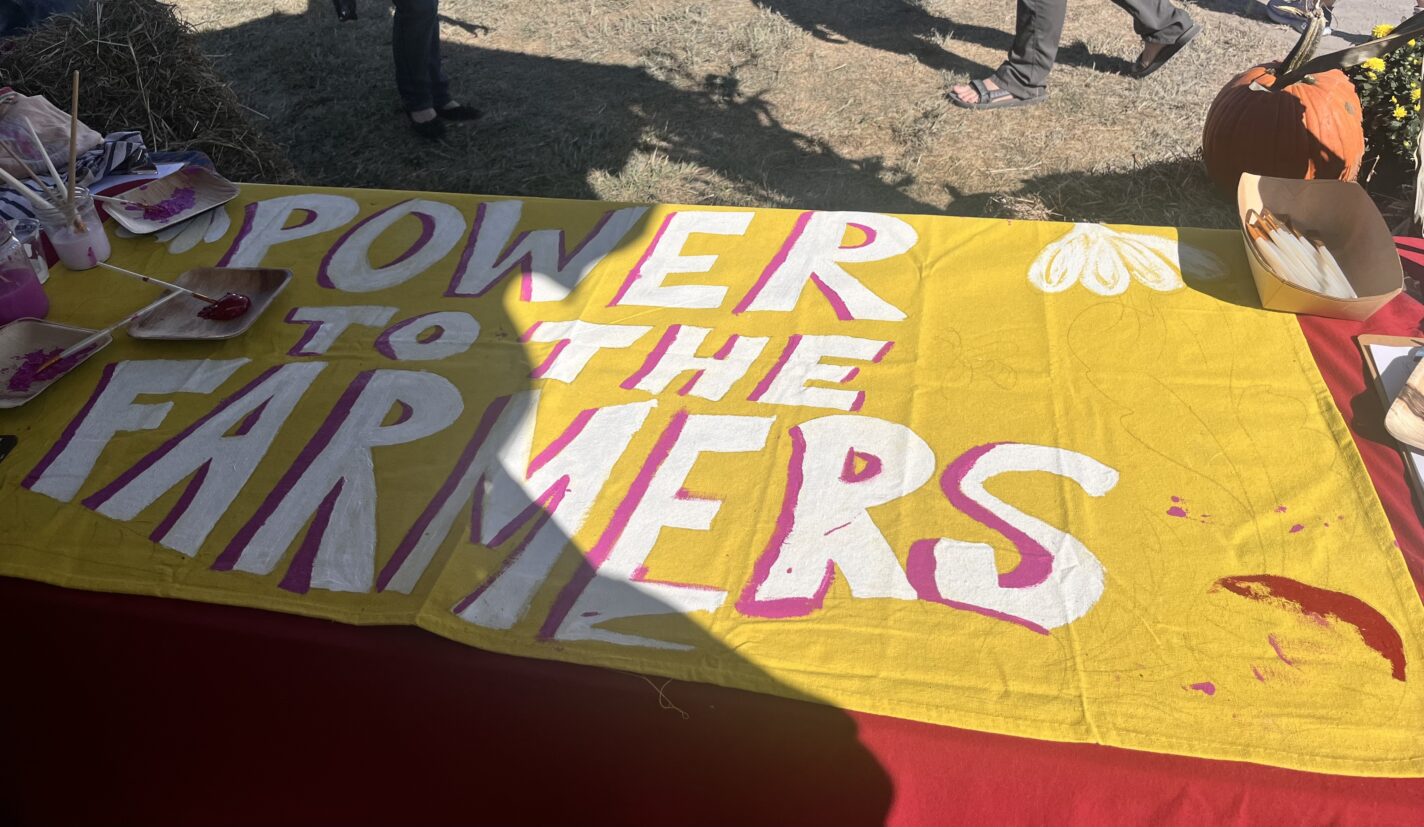This September the NAMA crew joined our sister org, the National Family Farm Coalition in Saratoga Springs, NY for the annual farmers’ gathering and music festival, Farm Aid. Farm Aid was started in 1985 by Willie Nelson as a way to raise money for family farmers who were dealing with decreasing land values and increasing interest rates, forcing many small farms into bankruptcy. Since then, small- and medium-scale food producers have continued to face increasing corporate consolidation without meaningful support from the federal agencies they rely on. I could feel the weight of decades of fighting for their livelihoods throughout the weekend.
This is a heaviness that is shared with small- and medium-scale seafood producers as well. As many of you are all too familiar with, our coastal communities face the same challenges that farming communities do when it comes to corporate power, rising barriers to entry, and ever-decreasing profit margins. NAMA and NFFC have been drawing these connections between food producers on land and at sea in a way that fosters community between fishers and farmers — two groups where community is everything.
This year at Farm Aid, we were able to build the narrative around food producers by connecting some fishers with reporters who were at the festival. NAMA board member Melanie Brown, a Native Alaskan who fishes for salmon out of Bristol Bay, was interviewed alongside Jeff Bednar, a farmer with NFFC, Profound Foods, and the Farmers and Ranchers Freedom Alliance (FARFA), by Willie’s Roadhouse channel on Sirius XM Radio. This interview was broadcast live and will be re-broadcast around Thanksgiving / National Day of Mourning. In her interview, Melanie was able to share her experiences as a small-scale fisher and relate them to the struggles that family farmers have been facing for decades.
There is no shortage of heavy conversations when it comes to fighting for our food sovereignty, local food systems, and rural and coastal communities against a backdrop of structural oppression, corporate greed, and ecological collapse. That is why events like Farm Aid, where food producers can come together to relax, share joy, and enjoy good music, are so vital to the movement. Sharing that space with people who have been fighting so hard for so long was a powerful reminder of why this work is so important.
This was my first Farm Aid and being there solidified to me that this is the work I want to be doing and these are the communities I want to be supporting. I’m only 26 and I still have a lot of questions about what my life will look like, but one thing that I do feel certain of is that the collective movement we are all building together is crucial to the health of our rural and coastal communities, and it is something that I want to be a part of.
With gratitude,
Casey Willson
In This Issue
The Louisiana Shrimp Festival
Block Corporate Salmon
Don’t Cage Our Oceans
New England Young Fishermen’s Alliance
Slow Fish in Charleston, SC
Food Economics Webinar with Niaz
Calls for Mutual Aid

